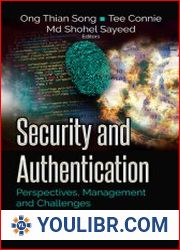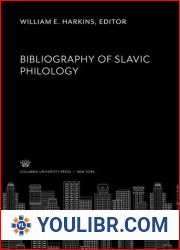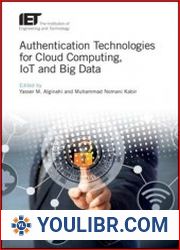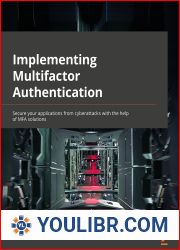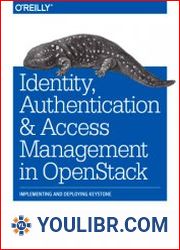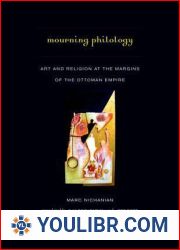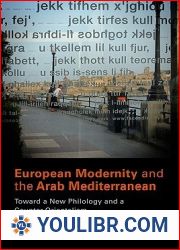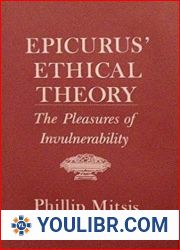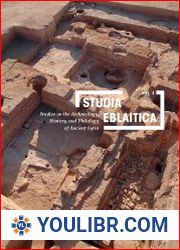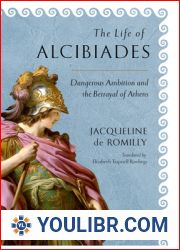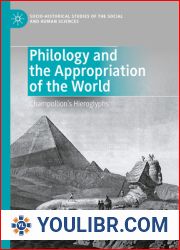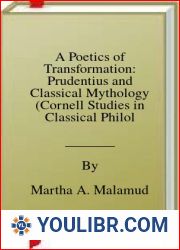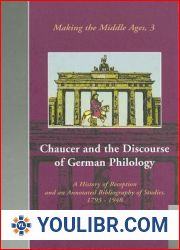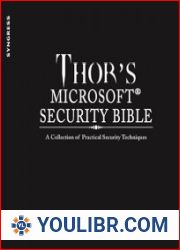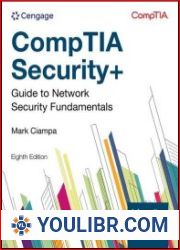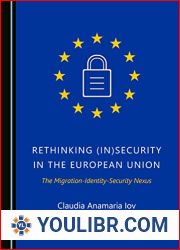
BOOKS - OS AND DB - Passwords Philology, Security, Authentication

Passwords Philology, Security, Authentication
Author: Brian Lennon
Year: 2018
Format: PDF
File size: 3 MB
Language: ENG

Year: 2018
Format: PDF
File size: 3 MB
Language: ENG

Passwords Philology Security Authentication In this thought-provoking book, author Brian Lennon challenges the traditional view of cryptology and philology as separate domains of activity, arguing instead that they are intimately connected and equally important in the realm of authentication. As we navigate the complex digital landscape of modern society, it is essential to recognize the interplay between these two fields and their shared focus on security and military applications. The Mathematical and Technical Side of Cryptology Cryptology, the scientific study of ciphers and codes, has long been considered a purely mathematical and technical discipline. However, Lennon posits that this narrow perspective overlooks the significant role that philology, the humanistic study of language, plays in shaping our understanding of authenticity and security. By examining the historical development of cryptology and philology, he reveals how these two fields have evolved together, with each influencing the other in profound ways. The Humanistic Side of Philology Philology, the study of natural or human languages, has traditionally been seen as a humanistic pursuit concerned with the nuances of language and its relationship to culture and history. Lennon contends that philology's focus on language and meaning is just as critical to contemporary issues of security and authentication as cryptology's focus on mathematics and technology. He demonstrates how the priorities of security and military institutions have shaped both fields, highlighting the need for a more holistic approach to authentication that incorporates both perspectives. Unifying the Two Fields Lennon argues that by uniting cryptology and philology, we can gain a deeper understanding of the complex interplay between technology and humanism in modern society.
Пароли Филология Безопасность Аутентификация В этой книге, заставляющей задуматься, автор Брайан Леннон бросает вызов традиционному взгляду на криптологию и филологию как на отдельные области деятельности, утверждая вместо этого, что они тесно связаны и одинаково важны в области аутентификации. Поскольку мы ориентируемся в сложном цифровом ландшафте современного общества, важно признать взаимодействие между этими двумя областями и их общую направленность на безопасность и военное применение. Математико-техническая сторона криптологии Криптология, научное изучение шифров и кодов, долгое время считалась чисто математической и технической дисциплиной. Однако Леннон утверждает, что эта узкая перспектива упускает из виду значительную роль, которую филология, гуманистическое изучение языка, играет в формировании нашего понимания подлинности и безопасности. Исследуя историческое развитие криптологии и филологии, он показывает, как эти две области развивались вместе, причем каждая из них оказывала глубокое влияние на другую. Гуманистическая сторона филологии Филология, изучение естественных или человеческих языков, традиционно рассматривалась как гуманистическая погоня, связанная с нюансами языка и его отношением к культуре и истории. Леннон утверждает, что внимание филологии к языку и смыслу столь же важно для современных вопросов безопасности и аутентификации, как и внимание криптологии к математике и технологиям. Он демонстрирует, как приоритеты безопасности и военных институтов сформировали обе области, подчеркивая необходимость более целостного подхода к аутентификации, который включает в себя обе точки зрения. Объединяя два поля Леннон утверждает, что, объединяя криптологию и филологию, мы можем получить более глубокое понимание сложного взаимодействия технологий и гуманизма в современном обществе.
Mots de passe Philologie Sécurité Authentification Dans ce livre qui fait réfléchir, l'auteur Brian nnon récuse la vision traditionnelle de la cryptologie et de la philologie comme des domaines d'activité distincts, affirmant plutôt qu'ils sont étroitement liés et également importants dans le domaine de l'authentification. Alors que nous nous concentrons sur le paysage numérique complexe de la société moderne, il est important de reconnaître l'interaction entre ces deux domaines et leur orientation générale vers la sécurité et les applications militaires. côté mathématique et technique de la cryptologie Cryptologie, l'étude scientifique des codes et des codes, a longtemps été considéré comme une discipline purement mathématique et technique. Cependant, nnon affirme que cette perspective étroite perd de vue le rôle important que la philologie, l'apprentissage humaniste de la langue, joue dans la formation de notre compréhension de l'authenticité et de la sécurité. En explorant le développement historique de la cryptologie et de la philologie, il montre comment ces deux domaines se sont développés ensemble, chacun ayant une influence profonde sur l'autre. côté humaniste de la philologie La philologie, l'étude des langues naturelles ou humaines, a été traditionnellement considérée comme une poursuite humaniste liée aux nuances de la langue et à son rapport à la culture et à l'histoire. nnon affirme que l'attention de la philologie sur le langage et le sens est aussi importante pour les questions modernes de sécurité et d'authentification que l'attention de la cryptologie sur les mathématiques et la technologie. Il montre comment les priorités de sécurité et les institutions militaires ont façonné les deux domaines, soulignant la nécessité d'une approche plus globale de l'authentification, qui intègre les deux points de vue. En combinant les deux champs, nnon affirme qu'en combinant la cryptologie et la philologie, nous pouvons acquérir une compréhension plus approfondie de l'interaction complexe entre la technologie et l'humanisme dans la société moderne.
Contraseñas Filología Seguridad Autenticación En este libro que hace pensar, el autor Brian nnon desafía la visión tradicional de la criptología y la filología como áreas de actividad separadas, argumentando en cambio que están estrechamente relacionadas y son igualmente importantes en el campo de la autenticación. A medida que nos centramos en el complejo panorama digital de la sociedad actual, es importante reconocer la interacción entre estas dos áreas y su enfoque común hacia la seguridad y las aplicaciones militares. lado matemático y técnico de la criptología La criptología, el estudio científico de los cifrados y códigos, ha sido considerada durante mucho tiempo una disciplina puramente matemática y técnica. n embargo, nnon sostiene que esta estrecha perspectiva pasa por alto el papel significativo que la filología, el aprendizaje humanístico del lenguaje, desempeña en la formación de nuestra comprensión de la autenticidad y la seguridad. Investigando el desarrollo histórico de la criptología y la filología, muestra cómo estas dos áreas se desarrollaron juntas, con cada una de ellas teniendo un profundo impacto en la otra. lado humanístico de la filología La filología, el estudio de las lenguas naturales o humanas, ha sido tradicionalmente considerada como una persecución humanista relacionada con los matices del lenguaje y su relación con la cultura y la historia. nnon sostiene que la atención de la filología al lenguaje y al significado es tan importante para las cuestiones modernas de seguridad y autenticación como la atención de la criptología a las matemáticas y la tecnología. Demuestra cómo las prioridades de seguridad y las instituciones militares han dado forma a ambas áreas, destacando la necesidad de un enfoque más holístico de la autenticación que incluya ambos puntos de vista. Uniendo los dos campos nnon afirma que al combinar criptología y filología podemos obtener una comprensión más profunda de la compleja interacción entre tecnología y humanismo en la sociedad actual.
As senhas de Filologia Segurança Autenticação Neste livro, que faz pensar, o autor Brian nnon desafia a visão tradicional da criptologia e da filologia como áreas de atuação individuais, afirmando que elas são muito ligadas e igualmente importantes no campo da autenticação. Como estamos focados na complexa paisagem digital da sociedade moderna, é importante reconhecer a interação entre as duas áreas e o seu foco geral na segurança e no uso militar. A parte matemática e técnica da criptologia da Criptologia, o estudo científico de códigos e códigos, foi por muito tempo considerado uma disciplina meramente matemática e técnica. No entanto, nnon afirma que esta perspectiva estreita perde de vista o papel significativo que a filologia, o aprendizado humanista da língua, desempenha na nossa compreensão da autenticidade e da segurança. Ao explorar o desenvolvimento histórico da criptologia e da filologia, ele mostra como as duas áreas evoluíram juntas, cada uma delas influenciando profundamente a outra. O lado humanista da filologia da Filologia, o aprendizado das línguas naturais ou humanas, foi tradicionalmente visto como uma perseguição humanista relacionada com as nuances da língua e suas atitudes com a cultura e a história. nnon afirma que a atenção da filologia para a linguagem e o significado é tão importante para as questões modernas de segurança e autenticação quanto a atenção da criptologia para a matemática e a tecnologia. Demonstra como as prioridades da segurança e das instituições militares formaram ambas as áreas, enfatizando a necessidade de uma abordagem mais holística da autenticação, que inclui ambos os pontos de vista. Ao juntar os dois campos, nnon afirma que, ao juntar criptologia e filologia, podemos ter uma maior compreensão da complexa interação entre tecnologia e humanismo na sociedade moderna.
Password Filologia curezza Autenticazione In questo libro, che fa riflettere, l'autore Brian nnon sfida la visione tradizionale della criptologia e della filologia come aree di attività separate, affermando invece che sono strettamente connesse e ugualmente importanti nel campo dell'autenticazione. Poiché ci concentriamo sul complesso panorama digitale della società moderna, è importante riconoscere l'interazione tra queste due aree e il loro orientamento generale verso la sicurezza e l'uso militare. Il lato matematico-tecnico della criptologia della criptologia, lo studio scientifico dei codici e dei codici, è stato per lungo tempo considerato una disciplina puramente matematica e tecnica. Ma nnon sostiene che questa prospettiva ristretta stia perdendo di vista il ruolo significativo che la filologia, l'apprendimento umanistico della lingua, svolge nella formazione della nostra comprensione dell'autenticità e della sicurezza. Esplorando l'evoluzione storica della criptologia e della filologia, mostra come queste due aree si siano sviluppate insieme, ognuna con un profondo impatto sull'altra. Il lato umanistico della filologia Filologia, l'apprendimento dei linguaggi naturali o umani, è stato tradizionalmente considerato un inseguimento umanistico legato alle sfumature della lingua e al suo rapporto con la cultura e la storia. nnon sostiene che l'attenzione della filologia per il linguaggio e il significato è tanto importante per le questioni moderne di sicurezza e autenticazione quanto l'attenzione della criptologia per la matematica e la tecnologia. Dimostra come le priorità della sicurezza e delle istituzioni militari abbiano formato entrambe le aree, sottolineando la necessità di un approccio più olistico all'autenticazione che includa entrambi i punti di vista. Unendo i due campi, nnon sostiene che unendo la criptologia e la filologia possiamo avere una maggiore comprensione della complessa interazione tra tecnologia e umanità nella società moderna.
Passwörter Philologie cherheit Authentifizierung In diesem zum Nachdenken anregenden Buch stellt der Autor Brian nnon die traditionelle cht auf Kryptologie und Philologie als getrennte Tätigkeitsfelder in Frage und argumentiert stattdessen, dass sie im Bereich der Authentifizierung eng miteinander verbunden und gleichermaßen wichtig sind. Da wir uns in der komplexen digitalen Landschaft der modernen Gesellschaft orientieren, ist es wichtig, das Zusammenspiel dieser beiden Bereiche und ihren gemeinsamen Fokus auf cherheit und militärische Anwendungen zu erkennen. Die mathematisch-technische Seite der Kryptologie Die Kryptologie, das wissenschaftliche Studium von Chiffren und Codes, galt lange als rein mathematische und technische Disziplin. nnon argumentiert jedoch, dass diese enge Perspektive die bedeutende Rolle der Philologie, des humanistischen Sprachenlernens, bei der Gestaltung unseres Verständnisses von Authentizität und cherheit übersieht. Durch die Untersuchung der historischen Entwicklung der Kryptologie und Philologie zeigt er, wie sich diese beiden Bereiche zusammen entwickelt haben, wobei jeder einen tiefgreifenden Einfluss auf den anderen hatte. Die humanistische Seite der Philologie Die Philologie, das Studium natürlicher oder menschlicher Sprachen, wurde traditionell als humanistisches Streben angesehen, das mit den Nuancen der Sprache und ihrer Beziehung zu Kultur und Geschichte verbunden ist. nnon argumentiert, dass der Fokus der Philologie auf Sprache und Bedeutung für moderne cherheits- und Authentifizierungsfragen ebenso wichtig ist wie der Fokus der Kryptologie auf Mathematik und Technologie. Er zeigt, wie die Prioritäten für cherheit und militärische Institutionen beide Bereiche geprägt haben, und unterstreicht die Notwendigkeit eines ganzheitlicheren Ansatzes für die Authentifizierung, der beide Standpunkte umfasst. Durch die Kombination der beiden Felder argumentiert nnon, dass wir durch die Kombination von Kryptologie und Philologie ein tieferes Verständnis für das komplexe Zusammenspiel von Technologie und Humanismus in der heutigen Gesellschaft gewinnen können.
''
Şifreler Filoloji Güvenlik Kimlik Doğrulama Bu düşündürücü kitapta, yazar Brian nnon, kriptoloji ve filolojinin ayrı faaliyet alanları olarak geleneksel görüşüne meydan okuyor ve bunun yerine kimlik doğrulama alanında yakından ilişkili ve eşit derecede önemli olduklarını savunuyor. Modern toplumun karmaşık dijital manzarasında gezinirken, bu iki alan arasındaki etkileşimi ve genel olarak güvenlik ve askeri uygulamalara odaklanmalarını tanımak önemlidir. Kriptolojinin matematiksel ve teknik tarafı Kriptoloji, şifrelerin ve kodların bilimsel çalışması, uzun zamandır tamamen matematiksel ve teknik bir disiplin olarak kabul edilmiştir. Bununla birlikte, nnon, bu dar perspektifin, filolojinin, dilin insancıl çalışmasının, özgünlük ve güvenlik anlayışımızı şekillendirmede oynadığı önemli rolü gözden kaçırdığını savunuyor. Kriptoloji ve filolojinin tarihsel gelişimini inceleyerek, iki alanın birlikte nasıl geliştiğini ve her birinin diğeri üzerinde derin bir etkisi olduğunu gösterir. Filolojinin insancıl tarafı Filoloji, doğal ya da insan dillerinin incelenmesi, geleneksel olarak dilin nüansları ve kültür ve tarihle olan ilişkisi ile ilgili insancıl bir arayış olarak görülmüştür. nnon, filolojinin dil ve anlam üzerine odaklanmasının, modern güvenlik ve kimlik doğrulama konularında kriptolojinin matematik ve teknolojiye odaklanması kadar önemli olduğunu savunuyor. Güvenlik ve askeri kurum önceliklerinin her iki alanı da nasıl şekillendirdiğini göstererek, her iki perspektifi de içeren kimlik doğrulamaya daha bütünsel bir yaklaşıma duyulan ihtiyacı vurgulamaktadır. nnon, iki alanı birleştirerek, kriptoloji ve filolojiyi birleştirerek, modern toplumdaki teknoloji ve hümanizmin karmaşık etkileşimi hakkında daha derin bir anlayış kazanabileceğimizi savunuyor.
مصادقة أمان كلمات المرور في هذا الكتاب المثير للفكر، يتحدى المؤلف بريان لينون النظرة التقليدية لعلم التشفير وعلم فقه اللغة كمجالات نشاط منفصلة، مجادلاً بدلاً من ذلك بأنهما مرتبطان ارتباطًا وثيقًا وبنفس القدر من الأهمية في مجال المصادقة. بينما نتنقل في المشهد الرقمي المعقد للمجتمع الحديث، من المهم التعرف على التفاعل بين هذين المجالين وتركيزهما العام على التطبيقات الأمنية والعسكرية. يعتبر الجانب الرياضي والتقني لعلم التشفير، الدراسة العلمية للشفرات والشفرات، منذ فترة طويلة تخصصًا رياضيًا وتقنيًا بحتًا. ومع ذلك، يجادل لينون بأن هذا المنظور الضيق يتجاهل الدور المهم الذي تلعبه فقه اللغة، الدراسة الإنسانية للغة، في تشكيل فهمنا للأصالة والأمن. عند فحص التطور التاريخي لعلم التشفير وعلم فقه اللغة، يوضح كيف تطور المجالان معًا، حيث كان لكل منهما تأثير عميق على الآخر. يُنظر تقليديًا إلى الجانب الإنساني من فقه اللغة، وهو دراسة اللغات الطبيعية أو البشرية، على أنه سعي إنساني يتعلق بالفروق الدقيقة في اللغة وعلاقتها بالثقافة والتاريخ. يجادل لينون بأن تركيز فقه اللغة على اللغة والمعنى مهم لقضايا الأمن والمصادقة الحديثة مثل تركيز علم التشفير على الرياضيات والتكنولوجيا. وهو يبين كيف شكلت أولويات المؤسسات الأمنية والعسكرية كلا المجالين، ويسلط الضوء على الحاجة إلى نهج أكثر شمولية للتوثيق يشمل كلا المنظورين. من خلال الجمع بين المجالين، يجادل لينون بأنه من خلال الجمع بين علم التشفير وفقه اللغة، يمكننا اكتساب فهم أعمق للتفاعل المعقد للتكنولوجيا والإنسانية في المجتمع الحديث.











